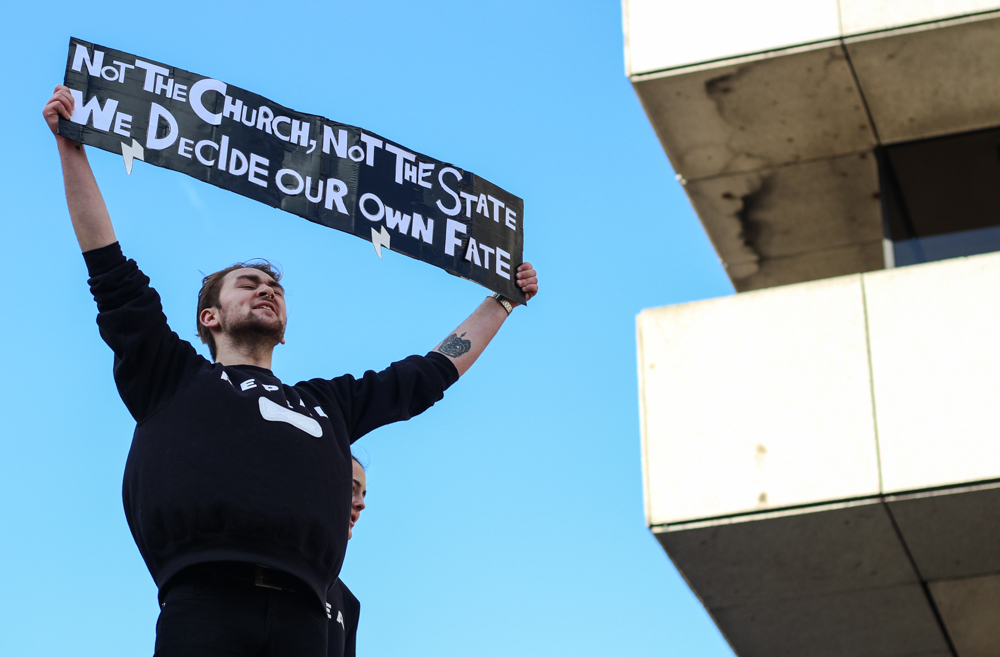In the euphoria that followed the resounding victory of the repeal campaign in May’s referendum, a narrative quickly developed. The campaign to repeal the eighth amendment, it went, had been successfully relegated to history. The battle had been won, and campaigners could now lay down their arms, safe in the knowledge that legislators, instructed by such firm consensus across the country, would pick up the baton to allow for free and safe access to abortion in Ireland. I myself was guilty of that very sentiment in this paper.
On Friday, however, Independent TD for Kerry Michael Healy-Rae gave a sinister preview of the tactics that may become one of the major roadblocks to the passage of abortion legislation in the Dáil over the coming months.
For some time the prominent Kerry politician, aided and abetted at every turn by his brother and fellow Independent TD Danny Healy-Rae, has become notorious for his vociferous opposition to the government’s Road Traffic Bill. In his attempts to disrupt the passage of the bill on Friday, Healy-Rae showed his mastery of numerous parliamentary by-laws, as he attempted to filibuster a vote on the bill by “talking it out”. Aware of the limited time for the legislation to be discussed given the Dáil’s impending summer recess, Healy-Rae spoke for over an hour, and despite several heated interjections by both government and opposition TDs, he very nearly succeeded in his endeavour.
For repeal activists, the events of Friday morning were a useful case study in how a small number of opposition TDs can rely on complex parliamentary procedures, largely unknown to the public, to delay, prevent and ultimately choke the passage of a bill. In the face of the received wisdom that the war for repeal had been won, such actions must surely come as an ominous warning giving rise to a call to arms in the months leading up to the introduction of legislation to give effect to the result of the referendum.
A small number of TDs can rely on parliamentary procedures to delay, prevent and ultimately choke the passage of a bill
There is a growing cabal of entrenched and experienced TDs and senators in the Houses of the Oireachtas, whose opposition to the liberalisation of Ireland’s abortion laws remains as strong as ever. Having remained defiant in the face of an overwhelming defeat in the referendum, murmurs have abounded in recent weeks about the possibility of these politicians forming a dedicated anti-abortion group in the Dáil, with the specific aim of opposing the introduction of any legislation. Several Independent TDs, it has been suggested, may leap on board, and more alarming still is the prospect that the group may retain the support of some rebel Fianna Fáil TDs, long at odds with their leader on the issue.
While some may suggest that such a small brigade of opposition can have no impact on the potential progress of any legislation with such resounding public backing, a band of only eight rural TDs came within hours of scuppering a bill that had broad cross-party support, as well as significant public sympathy.
It is critical, therefore, that as anti-democratic forces gather in the Oireachtas, the grassroots momentum that helped push through one of the most monumental changes in the history of our state does not dissipate. While the hard work and dedication that comes with door-to-door campaigning is done, the focus must now shift to lobbying the Oireachtas. Campaigners must keep the pressure on TDs and senators, reminding them of the overwhelming mandate the people gave the government to legislate on this issue.
Only with the continued engagement of those who fought on the front lines of the repeal campaign can the rhetoric and obduracy of this small group of TDs be overcome, ensuring that the popular vote isn’t blocked by the opportunistic use of parliamentary procedure.







